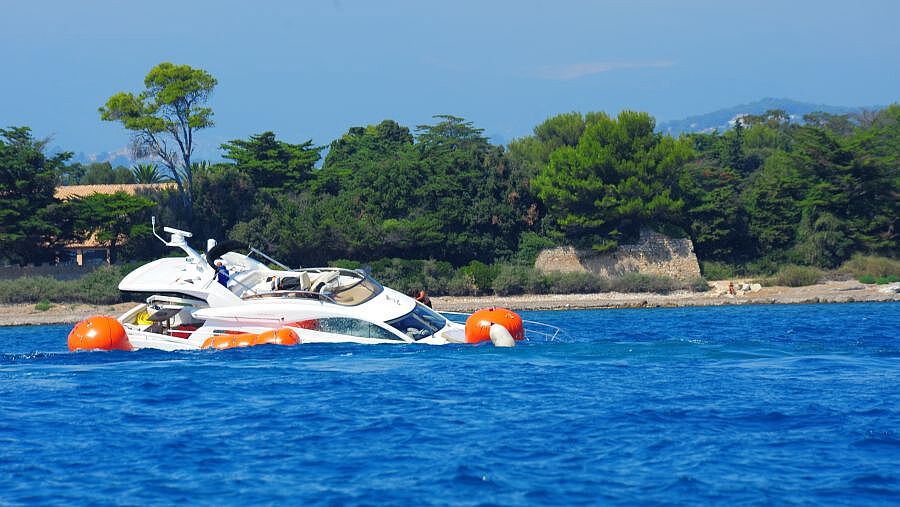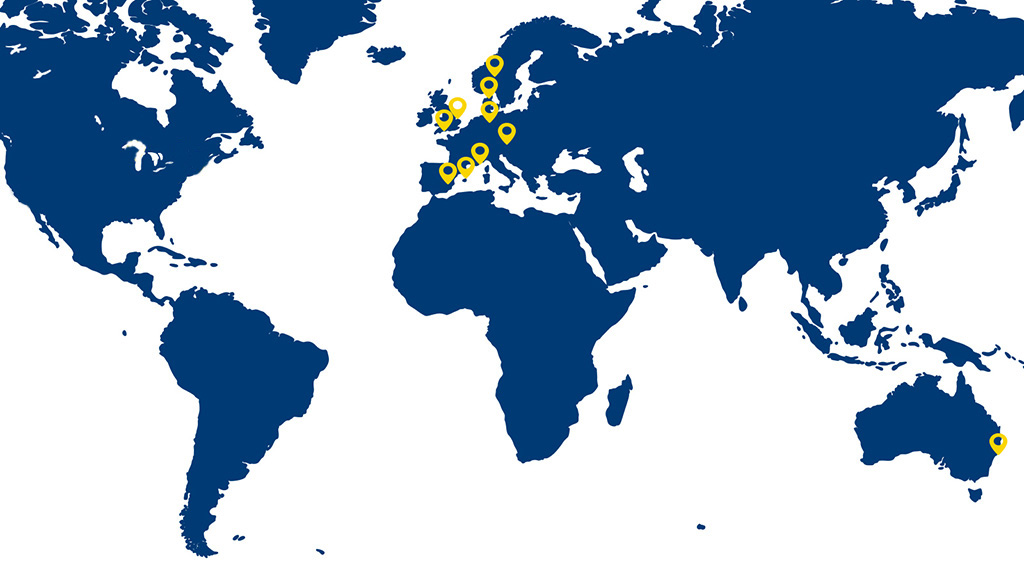Safety and Emergency at Sea
PAN-PAN and MAY-DAY: Assistance and rescue.
A common weak point in the training of pleasure boaters is the rescue request and how to navigate in what may be a difficult circumstance.
When a vessel has a problem on board, the first thing you should do is report it to the S.A.R. service, which in Italy is coordinated by the Italian Harbour Master's Office Coast Guard. One of the most important instruments aboard a pleasure craft is the VHF radio, with or without the DSC function, and it’s mandatory if you’re navigating more than 6 miles from the coast. At 6 knots, it’ll take you an hour to cover 6 miles. At 12 knots, it’ll take you half an hour but thirty minutes can be a long and life-changing period when you’re in a distress situation.

90% of yachtsmen sail within 6 miles of the coast and surprisingly, according to the law, there is no compulsory requirement to send help if an alert is raised. Yachtsmen entrust their ability to communicate with the shore and fellow yachtsmen, should they need to report a problem, to their VHF radios and their mobile phone.
VHF or mobile phone?
Both!
Here is an interesting example:
During one of our courses on the use of emergency equipment we shot a series of red parachute rockets from a vessel. Within a few minutes many of the boats sailing in the area had reversed their course and come at full speed to help us – this was a great sign, perhaps people are not distracted as we think they might be.
Arriving to our rescue, many were annoyed to learn that it was a practice scenario. We asked the attending boats if they had heard our call over the VHF, two of the boats had their radio turned off completely, and others didn’t have it tuned to channel 16. No one had heard our practice distress signal, nor the Captaincies, which advised the authorized start of our exercise.
This worrying habit is so wide spread that if for any reason you need to issue a PanPan because you need assistance, or a MayDay because you need a rescue, there is a likely chance you might not be heard by a nearby pleasure boat.
What is the advantage of the VHF over a mobile phone?
The real advantage is that everyone can hear you on the VHF, something not possible on a mobile phone call to one individual. If you find yourself in a distress situation, the VHF is the first choice of device for raising the alarm.
A patrol boat in the vicinity can be alerted either over the VHF or by mobile phone but by using the VHF, other boats in the vicinity have the opportunity to hear your call as well. Another pleasure boat, although possibly smaller and slower than the patrol vessel, may be closer at hand and able to reach you within as shorter amount of time.
The other advantage is that even in the absence of mobile phone coverage, if everyone had a VHF radio and kept it on, any boat, ship or fishing vessel in the locality is within reach to hear your call and relay it to the S.A.R.
So, even if it's not required by law, always have a VHF radio on board, don’t rely on just a mobile phone, and most importantly, keep the VHF turned on!
Tips on VHF usage:
- 1W
When you call the port for the mooring request or your friend sailing few miles from you, set your VHF to LOW-1W power, you will be audible within 1-5 miles but will not disturb all the other sailors within 25-30 miles.
- DW
Agree with your friends to communicate through an authorised channel for ship-to-ship traffic. Stay on that channel but keep listening to channel 16 by setting your radio with the "Dual Watch" function - the key marked with the DW symbol.
- External speakers
Equip your boat with speakers, so you have the possibility to listen to your VHF when out on deck. If informed on deck as well as below, you are in a better position to be of help to those in need of assistance.
A VHF with DSC function is interfaced to a GPS and, if no one is listening on channel 16, can send an SMS to another VHF radio with DSC function and trigger an alarm that will alert the crew on board to call you and find out what problem you may have. These new radios have many other functions too and many new and precise procedures that it would be wise to learn.
We encourage you to take a GMDSS course and research the free advice online.
